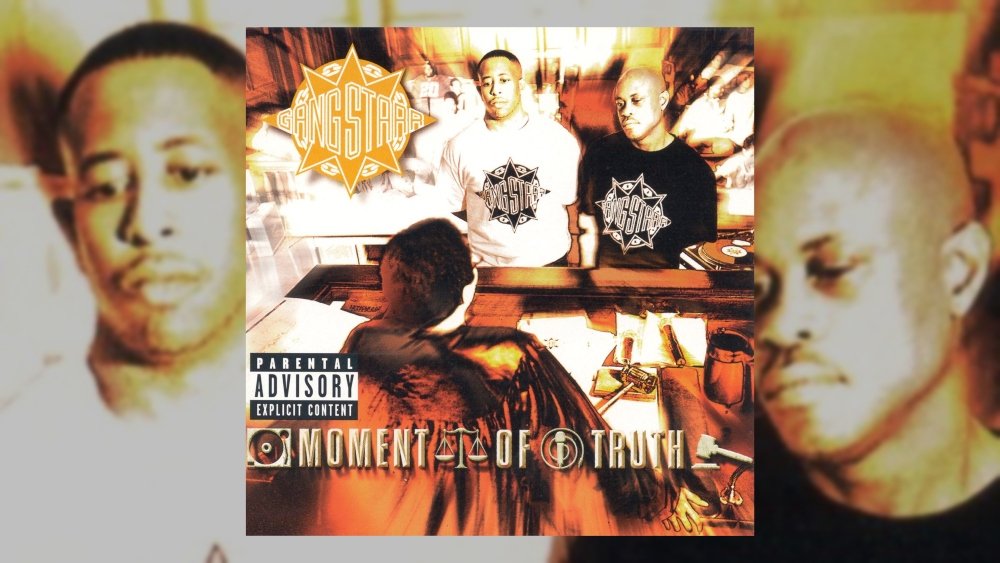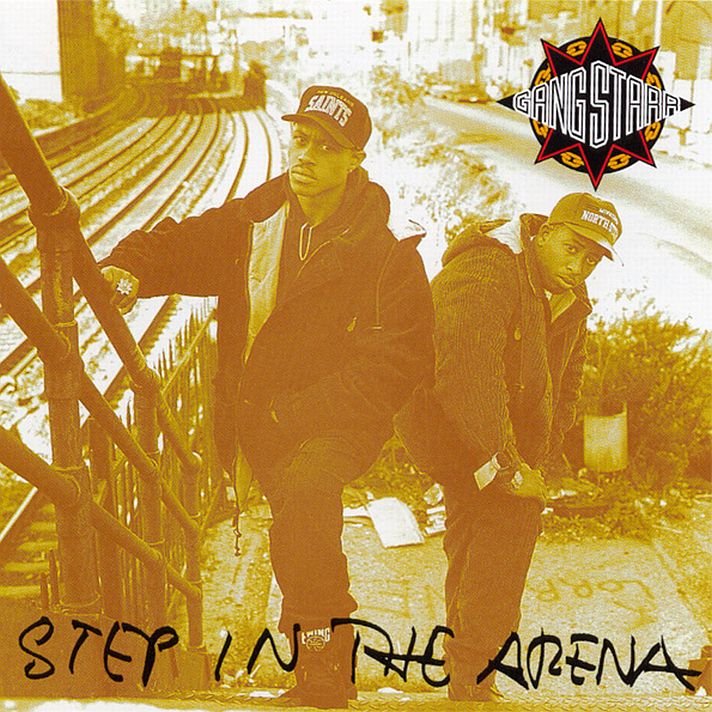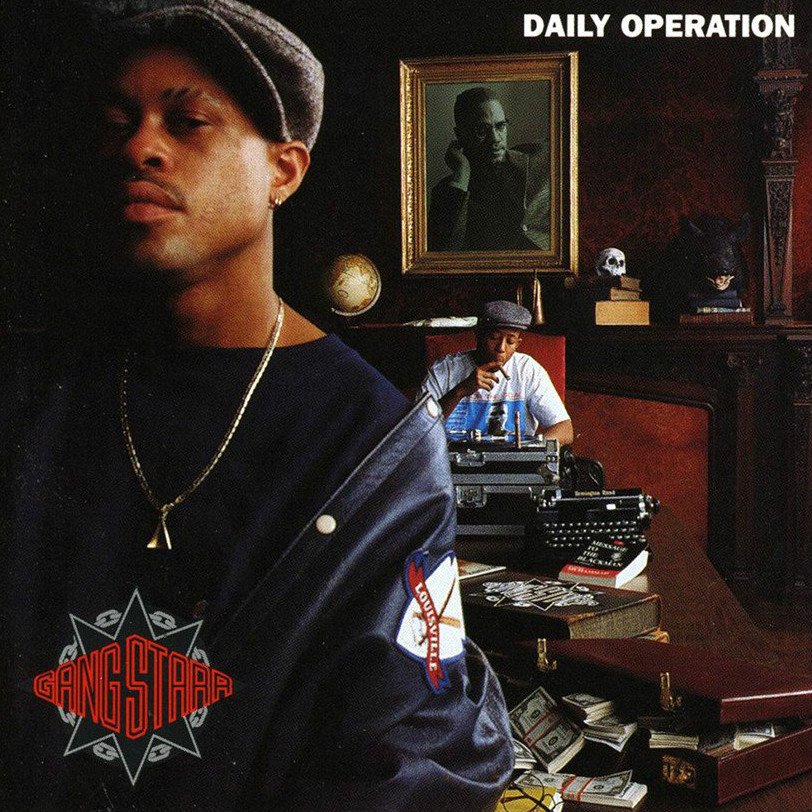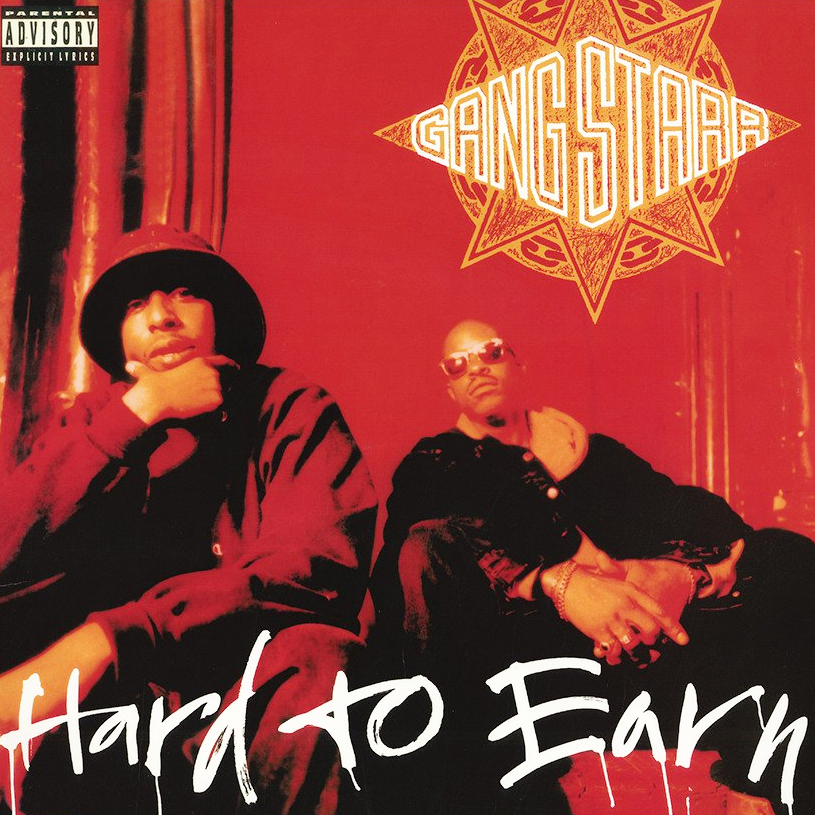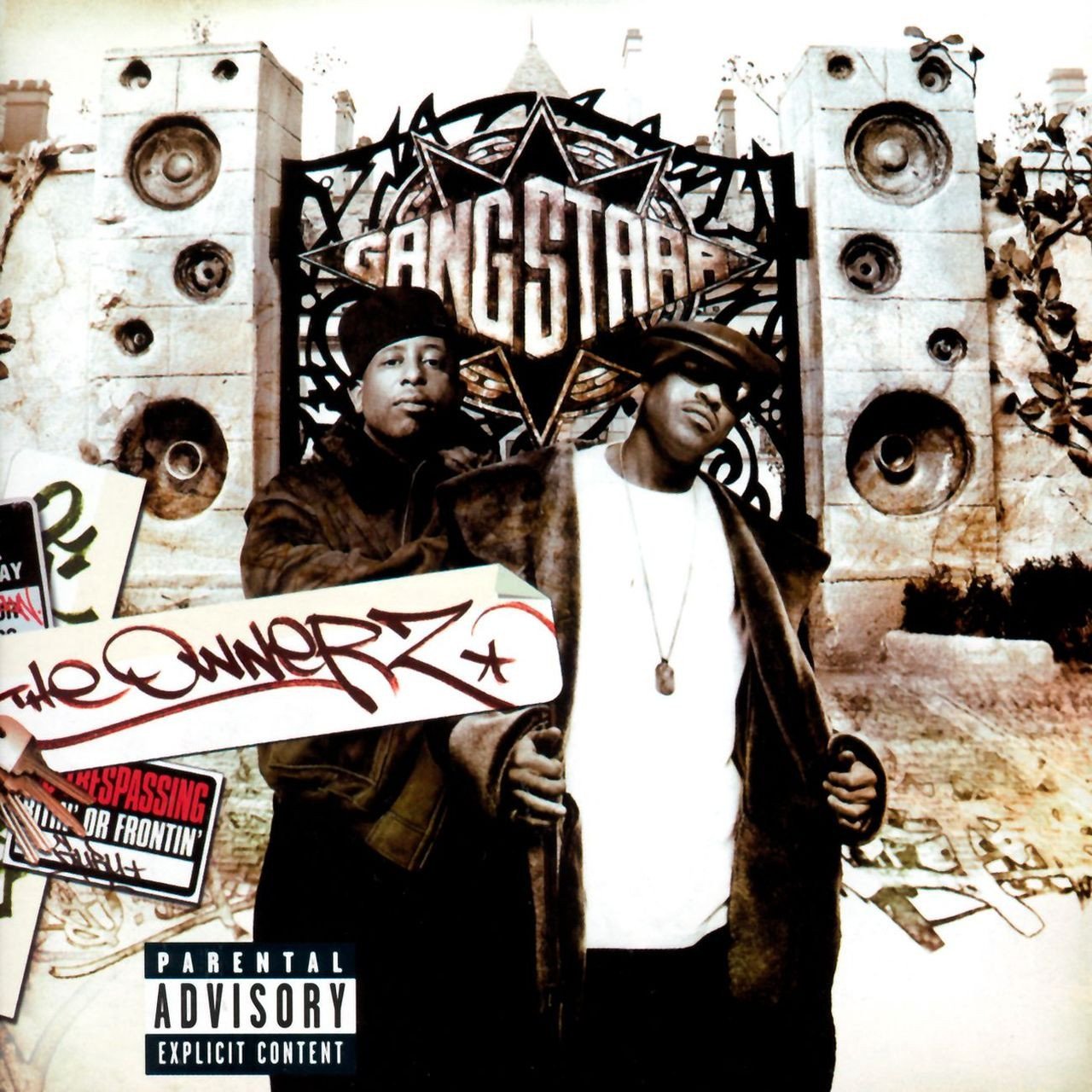Happy 25th Anniversary to Gang Starr’s fifth studio album Moment of Truth, originally released March 31, 1998.
About 15 minutes into Moment of Truth, DJ Premier lays down the law. “This goes out to anybody who’s doing the bullshit, straight up” he pronounces, then lays into those who are violating hip-hop’s rules of engagement. The first to get it are the artists, especially rappers, who sue other rappers for not clearing samples, especially for scratching vocals on a hook. Second are the distributors of break-beat records that “snitch,” listing “Sampled by _______” on the packaging. He concludes by declaring, “Y’all muthafuckas really don’t know what this hip-hop is all about. So while you keep on faking the funk, we gonna keep on walking through the darkness, carrying our torches. Underground will live forever, baby. We just like roaches: never dying, always living.”
This was the world of hip-hop in 1998, and Gang Starr were still the torch bearers for the genre. Keith “Guru” Elam and Chris “DJ Premier” Martin were the guiding light, navigating an increasingly unfamiliar realm where hip-hop was becoming big business and the standards that helped build the music were becoming increasingly forgotten. Twenty-five years ago, in the midst of this increasingly precarious environment, Gang Starr released Moment of Truth, their fifth album. It’s an album that’s as good as any in their catalogue, and one of the best albums to hit the shelves that year.
Moment of Truth was Gang Starr’s first album since Hard to Earn (1994). During the four years in between, Premier had become recognized as one of the best hip-hop producers in the game. Guru had released the second installment of his Jazzmatazz solo projects in 1995, but otherwise had been laying low.
Between 1994 and 1998, the landscape of hip-hop had drastically changed. Rap music was now ubiquitous. Some of the biggest stars in the music industry were rappers or at least rap adjacent. Corporations, who had initially perceived hip-hop music as a fad, were now spending millions on ad campaigns for soda and fast food that featured rap artists.
Gang Starr had always brought a meat-and-potatoes, blue-collar aesthetic to making hip-hop music. Guru rapped in his distinctive baritone monotone over dusty Premier tracks built around obscure jazz and soul records. With popular hip-hop music sporting a much glossier sheen in 1998, it was a bit of a question whether or not Gang Starr would get lost in the shuffle.
Instead, the crew thrived, slightly updating its sound, but remaining true to its roots. While the music was more melodic and a bit cleaner, the soul of the group remained intact. If anything, as Guru says to open the album, both the rhyme style and the style of beats are “elevated.” Behind the boards, Primo runs a clinic in hip-hop production, showcasing his superior sample chopping skills. Guru turned in the best lyrical performance of his career, and honestly one of the best lyrical performances of the past quarter-century. He even produced a pair of tracks on the album, the first time he had received the sole production credit on a Gang Starr album.
Moment of Truth was also Gang Starr’s lengthiest album, containing 20 tracks and spanning nearly 80 minutes. But the group makes excellent use of the expansive run time, covering many different topics. As a result, the album never drags.
Listen/Watch (Playlist):
Gang Starr was also rewarded for sticking to its principles and for their ambition: Moment of Truth was the group’s most successful album, and the only Gang Starr album to be certified Gold. As Guru states on “The Rep Grows Bigga,” he and Primo remained “the dedicated ministers of underground sound / When we’re doing our thing, you know we don’t fuck around.”
“You Know My Steez,” the album’s opening track and first single, serves as the album’s perfect mission statement. Premier puts together an expertly-chopped beat and pieces together one of his trademark “scratch collages” for its chorus. The song is textbook hip-hop distilled to its late ’90s era essence, with Guru chastising the rap move-fakers for trying to cash in on a false image. “Severe facts have brought this rap game to near collapse,” he raps. “So as I have in the past, I whoop ass / Dropping lyrics that be hotter than sex and candle wax / And one-dimensional MCs can't handle that.”
The album’s second single “Royalty” was further emblematic of Moment of Truth’s sound, but was also somewhat controversial at the time. For nearly a decade Gang Starr had been the symbol of staying committed to the rugged essence of hip-hop music and the “no sell out” ethos that had guided it through the ’80s and early ’90s. One of these commonly held tenets specified that collaborating with R&B artists was frowned upon.
So it was somewhat of a shock to Gang Starr’s loyal core audience when they learned that K-Ci and JoJo of the R&B group Jodeci were to appear on “Loyalty.” However, any fears should have been allayed by the final project. Rather than creating a jam geared towards gaining commercial airplay that had K-Ci and JoJo re-working a known pop hook, Primo created a consummate Gang Starr track, filled with soaring vocals and delicate pianos, which just happened to have the R&B duo singing on the chorus. Guru blesses arguably one of the best beats that Primo ever created, warning aspiring rappers not to sacrifice their principles for financial success, rapping, “The money though, it’s got people acting funny, yo / As soon as some n***as get some light, they be like dummies, yo / Products and puppets and pawns, getting played out / When authentic n***as step up, respect be laid out.”
Guru delves into steering others toward a more righteous path throughout Moment of Truth, leading them away from negative influences. Sometimes, like on the slow and deliberate “Robbin Hood Theory,” he encourages the people to rise up, “focus to create something great,” and, moreover “ruin the Devilish forces fucking up my black community.” Sometimes, like on the piano-heavy “What I’m Here 4,” Guru is a bit more forceful, as he describes destroying wack emcees’ dreams and sending them back to rethink the way they approach their music. But he resolves to build as well, choosing “to plant seeds for your mental, spirit and physical temple.”
Even when Guru is laying down some pure lyrical shit on Moment of Truth, he uses it in the hopes of achieving some higher purpose. “Work,” the album’s best song, isn’t just an exercise in slaying sub-par emcees—it’s also a track where Guru explains how Gang Starr’s work ethic and dedication to their craft has earned them respects from all of their peers and status as hip-hop icons. “You cornballs get stonewalled, blackballed, I own y’all,” he raps. “The veteran, running my plan, I'm the better man /Crazy raw, doing my job like the mob / Blazing y’all, and disappearing in the fog.”
Enjoying this article? Click/tap on the album covers to explore more about Gang Starr:
On “Above the Clouds,” another of the album’s pinnacles, Guru and Wu-Tang Clan’s Inspectah Deck hold court, existing as hip-hop titans on a higher spiritual plane. Primo creates an immaculately ethereal string-based track that would sound at home on an album by any of Deck’s Staten Island compatriots. Though Guru delivers a suitably grand verse, Deck is in rare form, contributing a performance as good as his opening verse on “Triumph” or “C.R.E.A.M.” “Invade your zone, ruin like ancient Rome,” he raps. “I span the universe and return to Earth to claim my throne / The maker, owner, plus soul controller/ Ayatollah rest in the sky, the cloud's my sofa.”
There was something about Moment of Truth that brought the best of the guest emcees who contributed to the project. “The Militia,” the album’s blistering third single, is notable for a banging opening verse by Big Shug and a marathon track closer by Freddie Foxxx a.k.a. Bumpy Knuckles. “Make ’Em Pay,” a Guru-produced track, is another ode to dispersing lyrical wisdom and leading by example, and the then-unknown Krumb Snatch rises to the occasion. “I see myself as the Black rap messiah,” he raps. “Colossal spreading my gospel through electrical wires / Spit fire through speech, so I can reach each and every / Tom, Dick, and Jerry slipping like petroleum jelly.”
Though he may present himself as lyrically superior, Guru doesn’t deign to view himself as infallible. On “JFK 2 LAX,” built around a gorgeous horn and vocal sample from the Supremes’ “It’s Time to Breakdown,” Guru recounts his arrest for gun possession. Facing a felony charge, he considers what has brought him to this point, and reevaluates his life and values. He raps, “And as I sit feeling the pain in my wrist / I vow to myself that I’mma change this shit / Or at least I gotta try or part of me will die / And only by action will any ideas solidify.”
A decent amount of real estate on Moment of Truth is dedicated to treachery in its many forms. The crew explores many different iterations of unfaithfulness by those they once trusted, framing it in a unique way each time. On “It’z a Set-Up,” Guru and Gang Starr Foundation member Hannibal Stax detail how they navigate the various traps that life presents them by keeping their thoughts elevated and focused.
Meanwhile, on the appropriately brolic “B.I. vs. Friendship,” Gang Starr teams with Brownsville O.G.s M.O.P. to explain the importance of keeping the business side of things strong when working in the music industry, and not letting prior friendships interfere with getting things handled correctly. “Betrayal” is one of the albums most contemplative tracks. Guru and Houston legend Scarface deliver verses over a somber beat taken from War’s “Deliver the World,” each describing a separate scenario about the perils of greed.
However, much of Moment of Truth focuses on striving to live positive. Guru is clearly thinking deeply about getting his life in order throughout Moment of Truth. It’s evident on the album’s title track, where he reconsiders who in his life is worth trusting and tries to formulate a plan to become a better person. The song features Guru at his most introspective. Very few MCs record music that gives anything other than lip service to self-improvement, but Guru expertly elucidates his thought process and inner struggles as he attempts to re-consider his priorities. There’s a level of self-awareness present on the song and the entire album which is very much missing from much of hip-hop music today.
It would be nice if Moment of Truth changed how rappers recorded music, inspiring purveyors of shiny-suit hip-hop to forsake their idols and create music that didn’t pander to obvious pop sensibilities. But honestly, stuff like that rarely happens, and things pretty much continued as they had been going beforehand. If anything, things got more stratified, with artists who sought mainstream limelight travelling headlong in one direction and the torch-bearers of the underground heading in another.
Few albums released during this era featured the same commitment to excellence that came naturally to Gang Starr. And even fewer showcased artists learning to update their sound successfully, without pandering or appearing tone deaf. Gang Starr strived to create something greater, and ended up creating a monument to hip-hop. They really don’t make groups like Gang Starr anymore.
LISTEN:
Editor's note: this anniversary tribute was originally published in 2018 and has since been edited for accuracy and timeliness.

